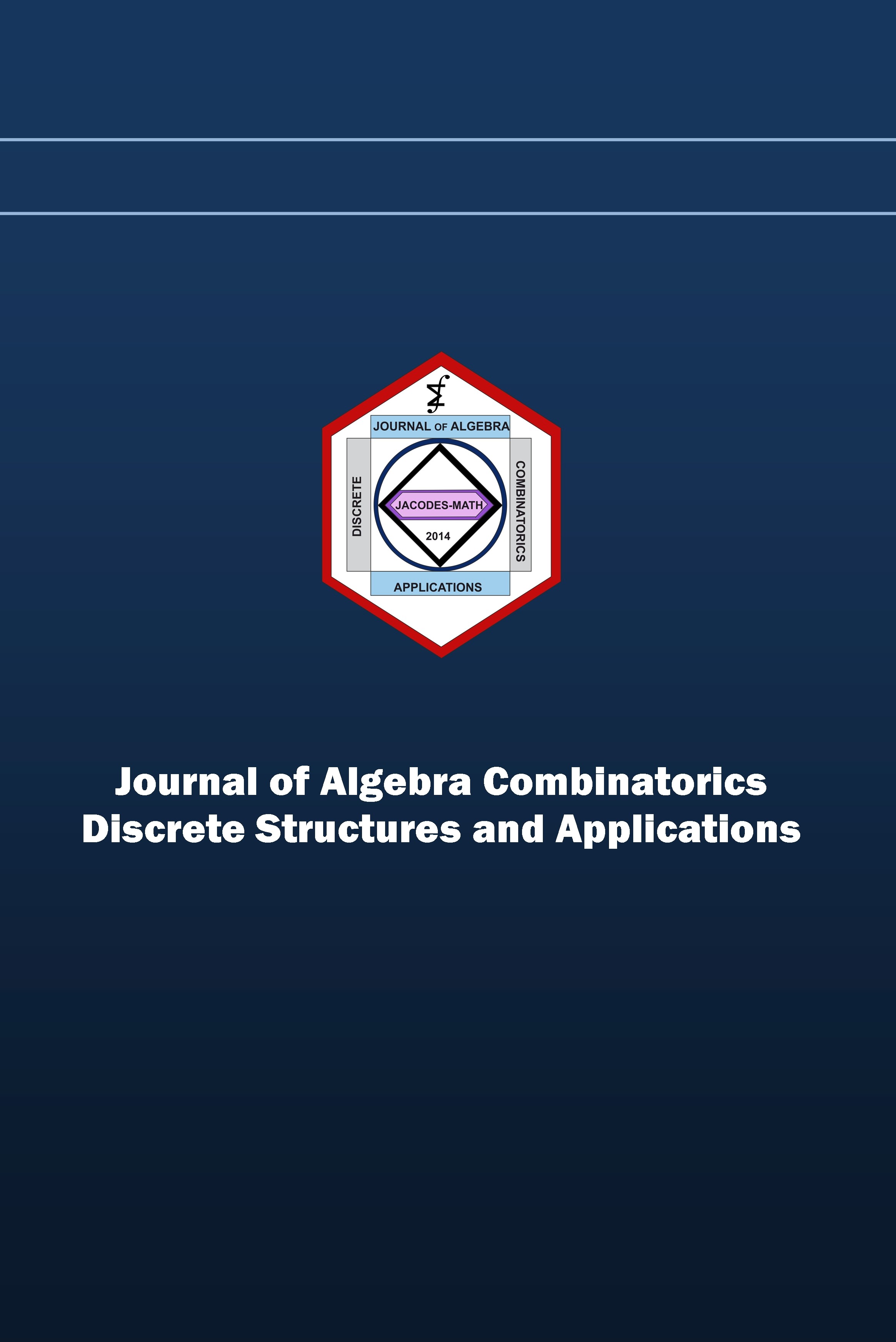Properties of dual codes defined by nondegenerate forms
Properties of dual codes defined by nondegenerate forms
Dual codes are defined with respect to non-degenerate sesquilinear or bilinear forms over a finite Frobenius ring. These dual codes have the properties one expects from a dual code: they satisfy a double-dual property, they have cardinality complementary to that of the primal code, and they satisfy the MacWilliams identities for the Hamming weight.
Keywords:
Frobenius ring, Sesquilinear form, Bilinear form, Dual code Generating character, MacWilliams identities,
___
- [1] H. L. Claasen, R. W. Goldbach, A field–like property of finite rings, Indag. Math. (N.S.) 3(1) (1992) 11–26.
- [2] P. Delsarte, Bounds for unrestricted codes, by linear programming, Philips Res. Rep. 27 (1972) 272–289.
- [3] M. Hall, A type of algebraic closure, Ann. of Math. 40(2) (1939) 360–369.
- [4] T. Y. Lam, Lectures on Modules and Rings, Graduate Texts in Mathematics, vol. 189, Springer–Verlag, New York, 1999.
- [5] G. Nebe, E. M. Rains, N. J. A. Sloane, Self–Dual Codes and Invariant Theory, Algorithms and Computation in Mathematics, vol. 17, Springer–Verlag, Berlin, 2006.
- [6] J. A. Wood, Duality for modules over finite rings and applications to coding theory, Amer. J. Math. 121(3) (1999) 555–575.
- [7] J. A. Wood, Foundations of linear codes defined over finite modules: the extension theorem and the MacWilliams identities. Codes over rings, 124–190, Ser. Coding Theory Cryptol., 6, World Sci. Publ., Hackensack, NJ, 2009.
- [8] J. A. Wood, Anti–isomorphisms, character modules and self–dual codes over non-commutative rings, Int. J. Inf. Coding Theory 1(4) (2010) 429–444.
- [9] J. A. Wood, Applications of finite Frobenius rings to the foundations of algebraic coding theory. Proceedings of the 44th Symposium on Ring Theory and Representation Theory, 223–245, Symp. Ring Theory Represent. Theory Organ. Comm., Nagoya, 2012.
- Başlangıç: 2015
- Yayıncı: İrfan ŞİAP
Sayıdaki Diğer Makaleler
Noha ABDELGHANY, Nefertiti MEGAHED
The extension problem for Lee and Euclidean weights
Philippe LANGEVİN, Jay A. WOOD
Essential idempotents and simplex codes
Gladys CHALOM, Raul A. FERRAZ, Cesar Polcino MİLİES
On some radicals and proper classes associated to simple modules
Septimiu CRİVEİ, Derya KESKİN TÜTÜNCÜ
Commuting probability for subrings and quotient rings
Stephen M. BUCKLEY, Desmond MACHALE
Abdullah HARMANCİ, Huanyin CHEN, A. Cigdem OZCAN
Correspondence between steganographic protocols and error correcting codes
M’hammed BOULAGOUAZ, Mohamed BOUYE
Codes over an infinite family of algebras
- IRWANSYAH, İntan MUCHTADİ-ALAMSYAH, Ahmad MUCHLİS, Aleams BARRA, Djoko SUPRİJANTO
